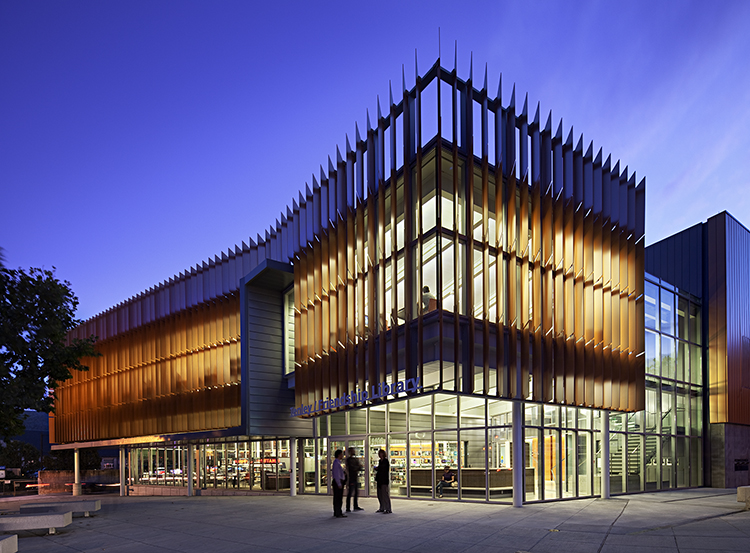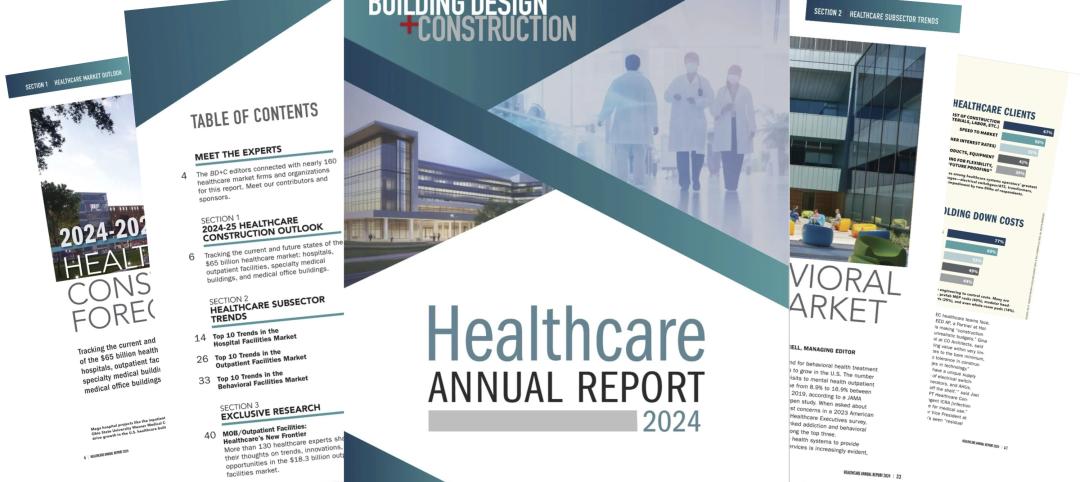Global architecture and design firm Perkins+Will announced today that they have signed an agreement which will result in The Freelon Group joining forces with Perkins+Will.
Founded by Phil Freelon, FAIA, LEED AP in Research Triangle Park, N.C., The Freelon Group is world renowned for design excellence and consulting work with museums, libraries, universities, and other civic and institutional clients.
Perkins+Will offers a full range of architectural expertise from its offices in Charlotte and RTP, notably to healthcare, science and technology, education, corporate, commercial, civic, and cultural clients. These capabilities will be enriched by The Freelon Group’s similar work, expanding the firm’s portfolio in these sectors. The combined practice will have nearly 80 professionals creating one of the largest and most award-winning architecture and design practices in North Carolina.
The Freelon Group will bring a portfolio of design achievements on behalf of some of America’s most respected cultural institutions including the Smithsonian Institution’s National Museum of African American History and Culture in Washington, D.C., the National Center for Civil and Human Rights in Atlanta, the Emancipation Park in Houston, the Museum of the African Diaspora in San Francisco, and multiple projects for the Washington, D.C. Public Libraries.

The Tenley Library, a Washington, D.C. Public Library designed by Freelon. Photo credit: Mark Herboth Photography
“By joining Perkins+Will, we can offer our clients in North Carolina and around the world a full spectrum of services for just about any type of project,” said Freelon. “The firms are ideally matched as we share a dedication to design excellence and commitment to social responsibility.”
Upon completion of the transaction, Freelon will assume a key leadership role at Perkins+Will in both North Carolina and globally. As the Managing and Design Director of the North Carolina practice, he will lead both Perkins+Will North Carolina offices in RTP and Charlotte. Freelon will come to Perkins+Will as an important member of the firmwide leadership team and will join the Board of Directors. He will also be a key leader for the firm's cultural and civic practice.
Freelon founded The Freelon Group in 1990. He is the recipient of the Thomas Jefferson Award for Public Architecture from the American Institute of Architects (AIA) and a member of the AIA College of Fellows.
He was appointed by President Obama to serve on the National Commission of Fine Arts and earned the academic appointment of Professor of Practice at the Massachusetts Institute of Technology (MIT) School of Architecture and Planning, where he will continue to be a member of the faculty.
Freelon has lectured at more than 30 major universities, museums, and other prominent venues, and his work has been published globally. A native of Philadelphia, Freelon earned his Bachelor of Environmental Design in Architecture degree from North Carolina State University and his Master of Architecture degree from MIT. He also received a Loeb Fellowship and spent a year of independent study at the Harvard University Graduate School of Design.
“With Phil Freelon, his experienced team of 40 designers, and other professionals who intend to join Perkins+Will, we look forward to offering clients a deeper level of cultural design expertise,” said Perkins+Will President and Chief Executive Officer Phil Harrison, FAIA, LEED AP. “Phil will further strengthen our leadership team and is a natural complement to the design excellence culture at Perkins+Will.”
Perkins+Will employees in the RTP office intend to relocate to The Freelon Group’s RTP office space. This office will work collaboratively with the Perkins+Will Charlotte office to service clients throughout North Carolina, nationally, and globally. Under Freelon’s direction, current Perkins+Will leadership will continue to serve the North Carolina practice, with David Brownlee in the role of Director of Operations in the RTP office and David Gieser as Director of Operations in the Charlotte office.
Related Stories
Codes and Standards | Jul 15, 2024
New York City code update changes definition of a major building
Changes affecting how construction projects in New York City are permitted will have significant impacts for contractors. On Dec. 11, the definition of a major building in the city’s code will change from 10 stories to seven, or 75 feet. The change will affect thousands more projects.
Adaptive Reuse | Jul 12, 2024
Detroit’s Michigan Central Station, centerpiece of innovation hub, opens
The recently opened Michigan Central Station in Detroit is the centerpiece of a 30-acre technology and cultural hub that will include development of urban transportation solutions. The six-year adaptive reuse project of the 640,000 sf historic station, created by the same architect as New York’s Grand Central Station, is the latest sign of a reinvigorating Detroit.
University Buildings | Jul 11, 2024
3 considerations for designing healthy, adaptable student dining
Amanda Vigneau, IIDA, NCDIQ, LEED ID+C, Director, Shepley Bulfinch, shares three ways student dining facilities have evolved to match changes in student life.
Healthcare Facilities | Jul 11, 2024
New download: BD+C's 2024 Healthcare Annual Report
Welcome to Building Design+Construction’s 2024 Healthcare Annual Report. This free 66-page special report is our first-ever “state of the state” update on the $65 billion healthcare construction sector.
Transit Facilities | Jul 10, 2024
Historic Fresno train depot to be renovated for California high speed rail station project
A long-shuttered rail station in Fresno, Calif., will be renovated to serve as the city’s high speed rail (HSR) station as part of the California High-Speed Rail Authority system, the nation’s first high speed rail project. California’s HSR system will eventually link more than 800 miles of rail, served by up to 24 stations.
Government Buildings | Jul 8, 2024
GSA adopts new accessibility guidelines for federal properties
The U.S. General Services Administration (GSA) adopted a new rule with new accessibility guidelines for federal buildings. The rule establishes that pedestrian facilities in the public right-of-way are readily accessible to and usable by people with disabilities.
Office Buildings | Jul 8, 2024
Office vacancy peak of 22% to 28% forecasted for 2026
The work from home trend will continue to put pressure on the office real estate market, with peak vacancy of between 22% and 28% in 2026, according to a forecast by Moody’s.
Virtual Reality | Jul 8, 2024
Can a VR-enabled AEC firm transform your project?
With the aid of virtual reality and three-dimensional visualization technologies, designers, consultants, and their clients can envision a place as though the project were in a later stage.
Green | Jul 8, 2024
Global green building alliance releases guide for $35 trillion investment to achieve net zero, meet global energy transition goals
The international alliance of UK-based Building Research Establishment (BRE), the Green Building Council of Australia (GBCA), the Singapore Green Building Council (SGBC), the U.S. Green Building Council (USGBC), and the Alliance HQE-GBC France developed the guide, Financing Transformation: A Guide to Green Building for Green Bonds and Green Loans, to strengthen global cooperation between the finance and real estate sectors.
Codes and Standards | Jul 8, 2024
New York State building code update would ban fossil fuels in new buildings
New York’s Building Code Council is set to include the All-Electric Buildings Act in its 2025 code update. The Act would ban natural gas and other fossil fuels in new buildings.

















